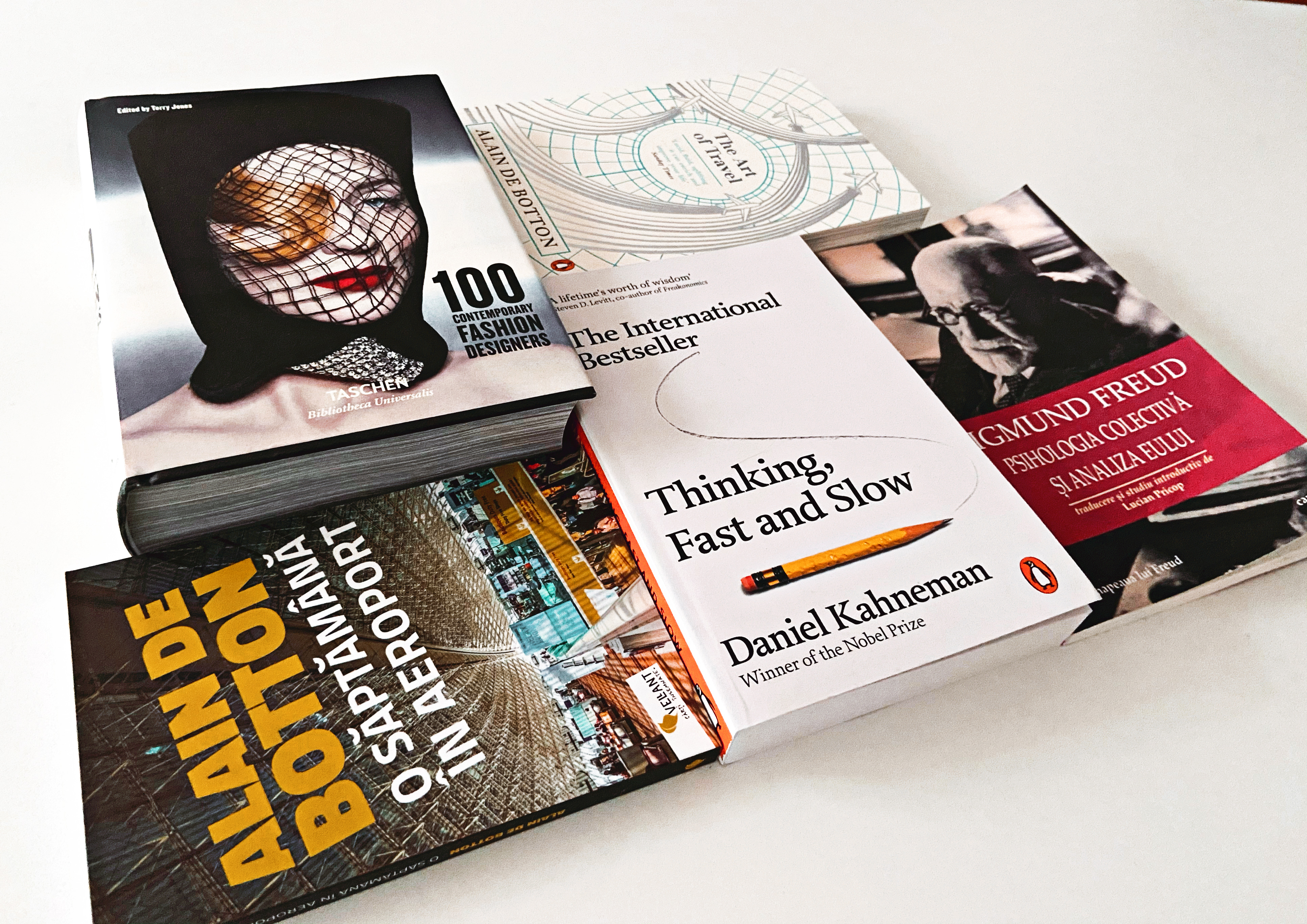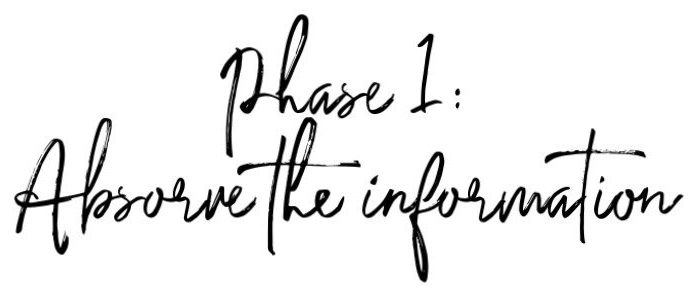
What is curiosity?
- As for how I see it, curiosity means discovery.
- Discovery leads to exploration.
- Exploration leads to new experiences, which lead to growth into a neverending maze of opportunities.
Staying curious means a life of endless adventures to be excited about! And what quest can be more exciting than life itself?
If you are a tremendously curious person, welcome to the club! This post is for you: all the folks, larger than life, who might be putting too much on the plate due to a bitter spoon of the choice paradox. And I don’t mean the fear of making bad decisions, but the excitement that makes you wanna do it all. I might have some cool insights for your struggle, so stay with me!
While writing this, I wanted to start with a story of myself: Where and when did the curiosity quest start? You might wanna make some digging and think about it yourself.
HOW OUR PARENTS CAN SET US FOR SUCCESS
One of the greatest life blessings that I am humbled by is the joy of having genuinely loving parents. Our parents’ care for us, as children, plays a tremendously important role in the foundation for who we are today and the persons that we are becoming tomorrow. But just love isn’t enough. What is even more important is how they express it and show it to us.
I remember my mother used to invest so much time into encouraging our hobbies when we were kids. Whenever she spotted a new interest we were exploring, she was the first to create a proper space for that hobby to develop. And I know for a fact, my sister and I didn’t give her a break.
When we were into music, she bought us a guitar and arranged to take classes. When I was into poetry, she used to remind me every time we had friends visiting that it’s an opportunity to prepare a poem for them as a warm welcome back. When it was painting, she would make sure we had all the tools needed to pursue the hobby. I do remember one time, in general school, I was preparing a painting for an art contest and I was running out of green. She couldn’t find the color palette I needed in the local stores, so she rode her bicycle 10 kilometers to get me the paint from a nearby town.
…and more similar examples that could keep on going, from making us custom costumes for our plays to registering us for singing auditions & co.
My mother was our number one fan and it’s only today when I fully acknowledge what a tremendous role she played into framing us towards being curious. As children, all we knew was that every time we got curious about something, she would get us the playing tools that led to new experiences and then to this feeling that our childhood became larger than life just because…we learned new things.
CURIOSITY AS A BLESSING AND A CHALLENGE
As much as being curious can be a blessing, it can certainly be a challenge too. Sharing your time and energy between more than just a couple of interests can lead to both exciting and difficult times:
THE CHALLENGES
- Your time is limited and you’re often confronted with the paradox of choice;
- Your energy might split between too many to-dos;
- It takes more time to master something when you’re doing too many things at once;
- It’s easier to lose focus and get distracted when there are so many options to turn to.
THE BLESSINGS
- You develop faster;
- Your knowledge broadens;
- Your innovation capacity improves due to the increasing knowledge points connecting the dots.
- Your brain structure changes due to the newly formed synapses. (It is generally agreed that learning occurs when the acquisition of new information causes synaptic changes).
- On the long term, you start to learn easier and faster as your brain adapts to the new challenges;
- Your network starts to enrich and becomes more complex;
- You start encountering new life experiences and the list can go on.
Now, the most important 2 questions:
How does learning actually happens and what can you do to make it more efficient?
Here’s the process your brain goes through while acquiring new information.
According to Dr. Joe Dispenza, when we learn new things, our brain structure is changing through the formation of new synapses. The learning process starts with the absorption phase when the brain receives new information signals:
- Through live experiences (visiting a new place, trying a new sport, eating a new dish) or…
- Through documentation (reading a book, watching a movie/documentary, participating in a training & so on).

Your brain uses your current reference structures to decode the new information. Think about an astronomy professor who teaches about Saturn for a very young class of students: “Kids, imagine the planet as a huge lollipop, but without a stick and a circle of sugar crumbs around it. These crumbs are floating like helium balloons in the air due to the Saturn’s gravity.”
What he’s doing is using a reference system the students already own to decode the new information and help them understand it. The process works the same for adults. We use what we already know to understand new philosophies.
The more you know, the easier it is to learn new things, due to a reference system that is under continuous construction.
TRICKS TO IMPROVE THE DECODING PHASE
- ATTENTION QUALITY: Learning is all about your attention quality. The fewer distractions you have, the easier and faster you decode the information. There is no such thing as multitasking if you want to learn efficiently.
One of the reasons why it’s hard to remember things is because we didn’t pay enough quality attention when we learned them.
- EXERCISE: An extra insight to improve your focus and your brain’s cognitive ability is exercise.
Exercise raises your heart rate and increases blood flow to your brain. As your increased breathing pumps more oxygen into your bloodstream, more oxygen is delivered to your brain. This leads to neurogenesis— the production of neurons—in certain parts of your brain that control memory and thinking. Neurogenesis increases brain volume and is believed to help buffer against the effects of dementia.
Another factor validating the link between cognition and exercise is neurotrophins – proteins that aid neuron survival and function. It has been noted that exercise promotes the production of neurotrophins, leading to greater brain plasticity, and therefore, better memory and learning.
 I’ve gone through a period in my life of exponential learning. There were a variety of trainings that my team and I had to pursue in a relatively short period of time. The classes were very rich in information, they were scheduled consecutively and with little pause in between for sedimentation.
I’ve gone through a period in my life of exponential learning. There were a variety of trainings that my team and I had to pursue in a relatively short period of time. The classes were very rich in information, they were scheduled consecutively and with little pause in between for sedimentation.
It was an outstanding time, yet, at the end of it, I felt that despite the amount of information that we absorbed those days, I left with just a few takeaways, a lot less that I expected. That was the moment when I understood the power of sedimentation.
The whole experience was really complex, yet it happened too fast. Imagine pouring tea into a cup, through a filter. If you don’t have enough patience for the leaves to settle and the water to strain, the tea will spill and you are wasting it. The same process happens with your brain.
Give your mind the required time to sediment the learnings.

This last phase is probably the most important one. Remember the following: If you don’t use it, you lose it. It is just that simple.
The synapses new-formed are weak at the beginning and practice is the best way to strengthen and fix them in the long term. Your brain gets rid of the synapses that are degraded and are no longer used.
So instead of choosing 3 new things you want to learn in the following 3 months, choose just one. Give yourself enough time to master it before moving to something else. You’re making yourself a favor by saving quality time.
…and make conversation! Pass the information forward while helping those new-synapses in your brain to strengthen.

I hope this helps you excel in everything you do!
A.
